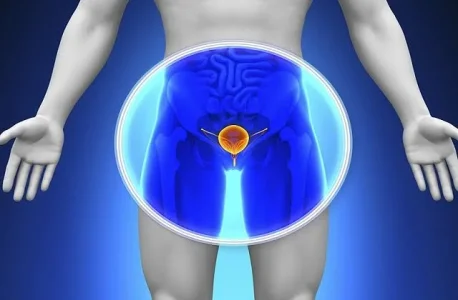P
PressRoom
Guest
Prostate cancer is a disease which only affects men. Cancer begins to grow in the prostate - a gland in the male reproductive system. The prostate is an exocrine gland of the male reproductive system, and exists directly under the bladder, in front of the rectum. An exocrine gland is one whose secretions end up outside the body e.g. prostate gland and sweat glands. It is approximately the size of a walnut.

Causes of Prostate Cancer
It is not known exactly what causes prostate cancer, although a number of things can increase your risk of developing the condition.
1. Age: Age is considered as the primary risk factor. The older a man is, the higher is his risk. Prostate cancer is rare among men under the age of 45, but much more common after the age of 50.
2. Genetics And Family History: In some cases, the mutations that lead to prostate cancer are inherited. If you have a family history of prostate cancer, you’re at increased risk of developing the disease yourself because you may have inherited damaged DNA.
According to the American Cancer Society, approximately 5-10 percent of prostate cancer cases are caused by inherited mutations. Research also shows that having a close female relative who developed breast cancer may also increase your risk of developing prostate cancer.
3. Diet: A diet that’s rich in red meat and high-fat dairy products may also be a risk factor for prostate cancer. On the other hand, men who eat such diets also tend to eat fewer fruits and vegetables. Experts don’t know if the high levels of animal fat or the low levels of fruits and vegetables contribute more to dietary risk factors.
4. Medication: Some studies say there might be a link between the daily use of anti-inflammatory medicines and prostate cancer risk. A study found that statins, which are used to lower cholesterol levels, may lower a person's risk of developing prostate cancer.
5. Obesity: A study found a clear link between obesity and raised prostate cancer risk, as well as a higher risk of metastasis and death among obese people who develop prostate cancer.
6. Sexually transmitted diseases (STDs): Men who have had gonorrhea have a higher chance of developing prostate cancer, according to research from the University of Michigan Health System.
7. Exercise: Men who regularly exercise have also been found to be at lower risk of developing prostate cancer.
8. Ethnic group: Prostate cancer is more common among men of African-Caribbean and African.
--
This article as a guide has contributions from health-related contents.

Causes of Prostate Cancer
It is not known exactly what causes prostate cancer, although a number of things can increase your risk of developing the condition.
1. Age: Age is considered as the primary risk factor. The older a man is, the higher is his risk. Prostate cancer is rare among men under the age of 45, but much more common after the age of 50.
2. Genetics And Family History: In some cases, the mutations that lead to prostate cancer are inherited. If you have a family history of prostate cancer, you’re at increased risk of developing the disease yourself because you may have inherited damaged DNA.
According to the American Cancer Society, approximately 5-10 percent of prostate cancer cases are caused by inherited mutations. Research also shows that having a close female relative who developed breast cancer may also increase your risk of developing prostate cancer.
3. Diet: A diet that’s rich in red meat and high-fat dairy products may also be a risk factor for prostate cancer. On the other hand, men who eat such diets also tend to eat fewer fruits and vegetables. Experts don’t know if the high levels of animal fat or the low levels of fruits and vegetables contribute more to dietary risk factors.
4. Medication: Some studies say there might be a link between the daily use of anti-inflammatory medicines and prostate cancer risk. A study found that statins, which are used to lower cholesterol levels, may lower a person's risk of developing prostate cancer.
5. Obesity: A study found a clear link between obesity and raised prostate cancer risk, as well as a higher risk of metastasis and death among obese people who develop prostate cancer.
6. Sexually transmitted diseases (STDs): Men who have had gonorrhea have a higher chance of developing prostate cancer, according to research from the University of Michigan Health System.
7. Exercise: Men who regularly exercise have also been found to be at lower risk of developing prostate cancer.
8. Ethnic group: Prostate cancer is more common among men of African-Caribbean and African.
--
This article as a guide has contributions from health-related contents.

